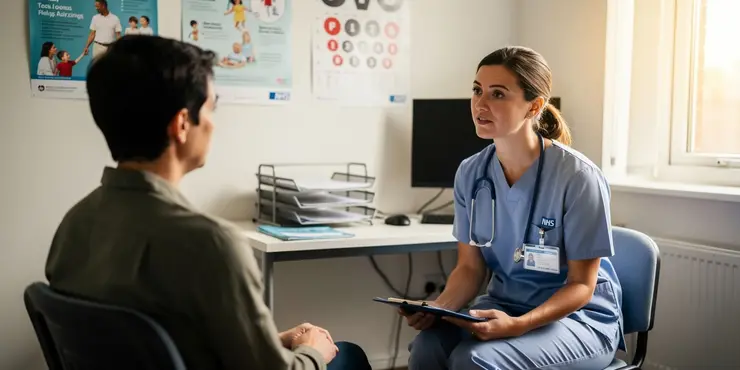
Find Help
More Items From Ergsy search
-
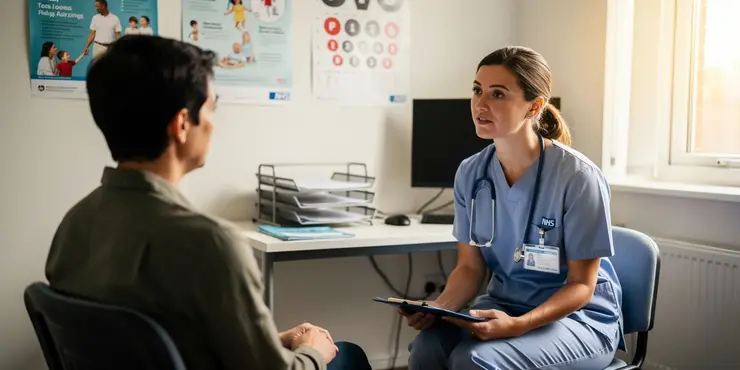
How does family history affect the risk of bowel cancer?
Relevance: 100%
-
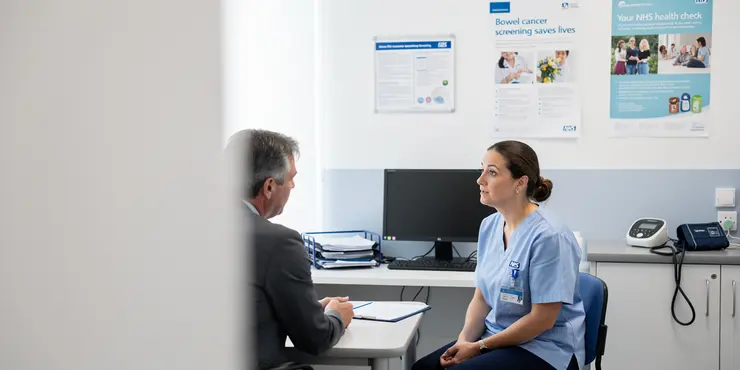
Taking a Genetic Family History - The Conversation (Bowel Cancer)
Relevance: 93%
-
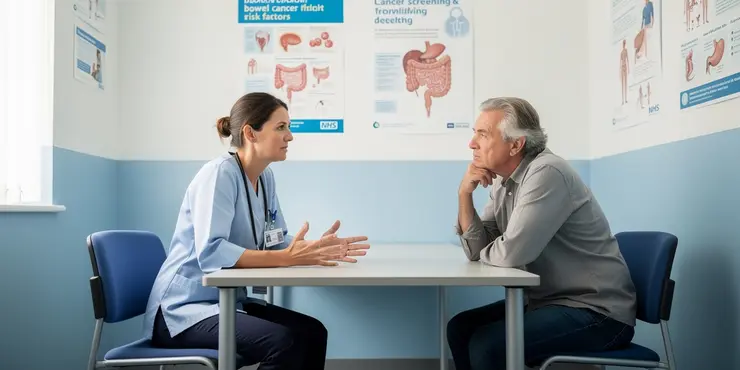
What are the risk factors for bowel cancer?
Relevance: 79%
-
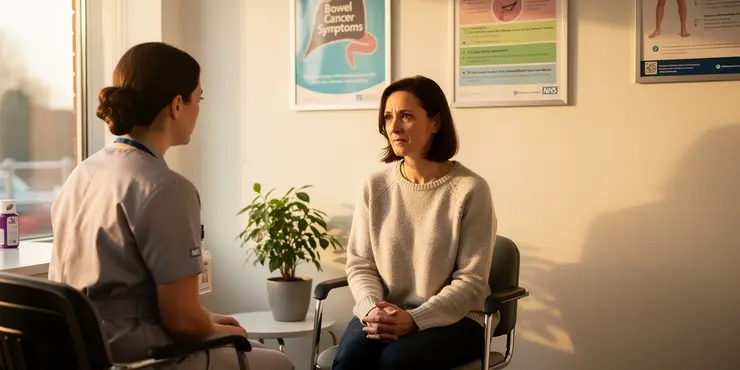
What is Bowel Cancer?
Relevance: 67%
-
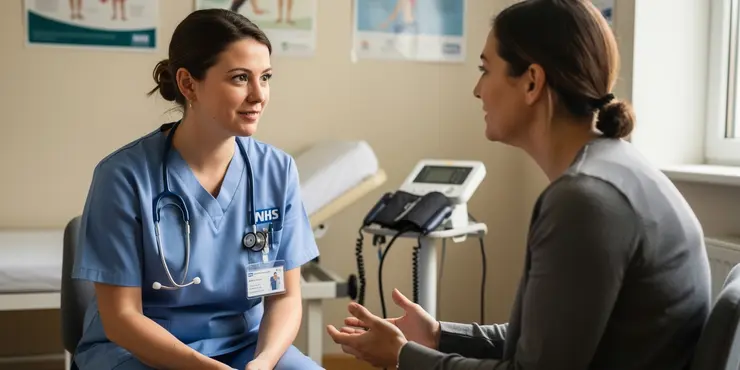
How common is bowel cancer?
Relevance: 65%
-
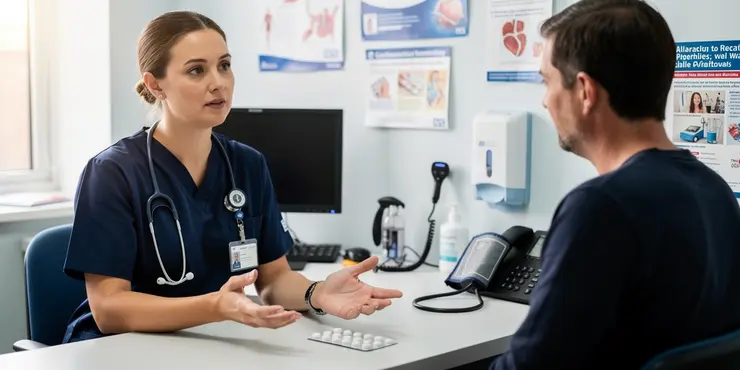
Should people with a family history of colorectal cancer take aspirin?
Relevance: 64%
-
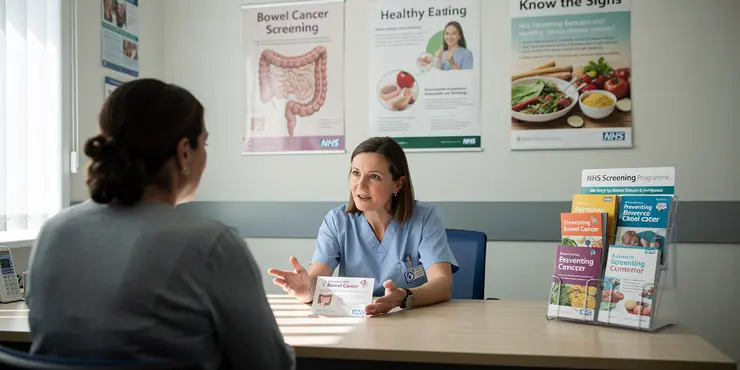
Can bowel cancer be prevented?
Relevance: 63%
-
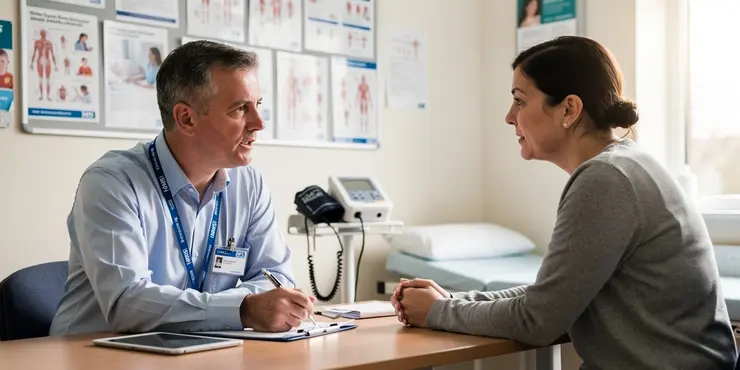
Why is there a surge in bowel cancer?
Relevance: 61%
-
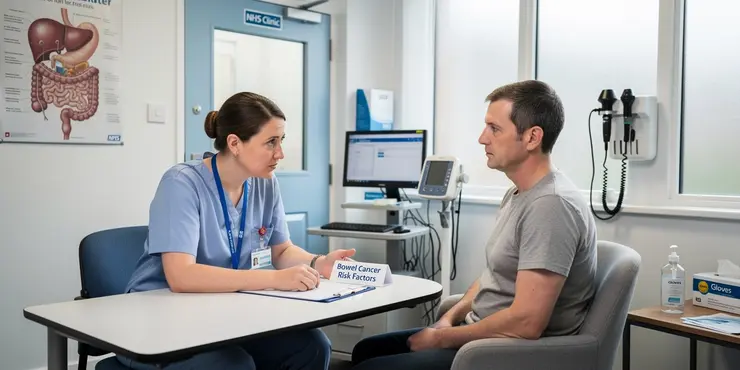
What factors are contributing to the increase in bowel cancer cases?
Relevance: 61%
-
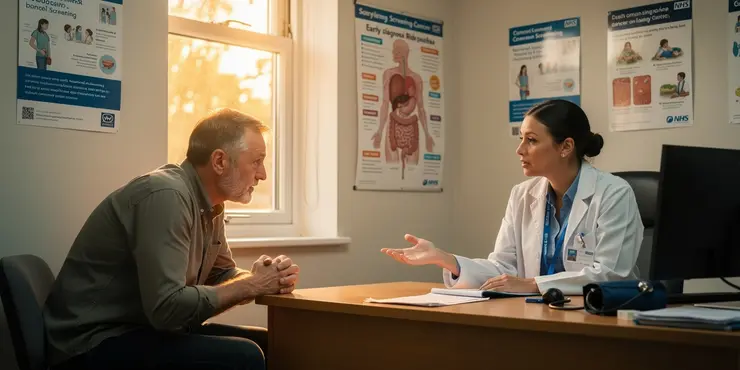
How is bowel cancer diagnosed?
Relevance: 60%
-
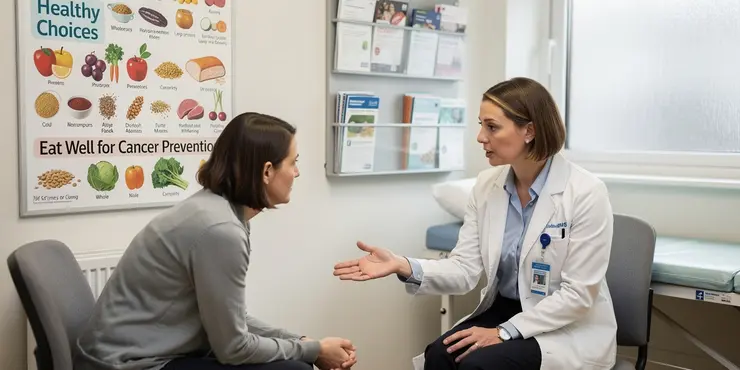
Can lifestyle changes help reduce bowel cancer risk?
Relevance: 59%
-
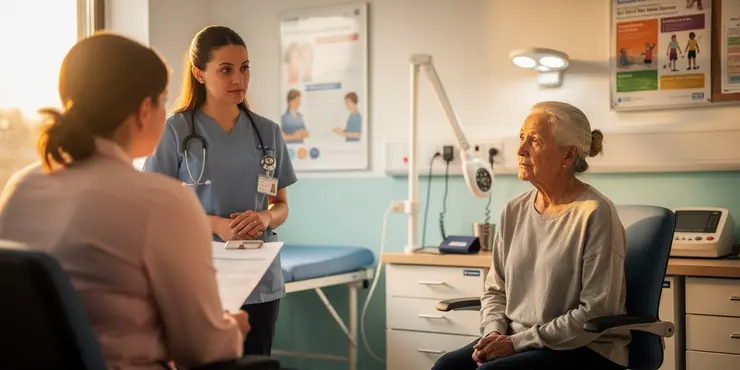
Bowel cancer - Symptoms and signs to look out for
Relevance: 59%
-
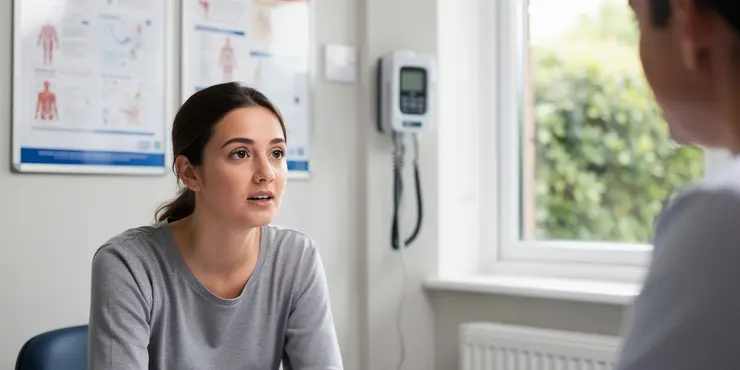
Are younger people being diagnosed with bowel cancer more frequently?
Relevance: 58%
-
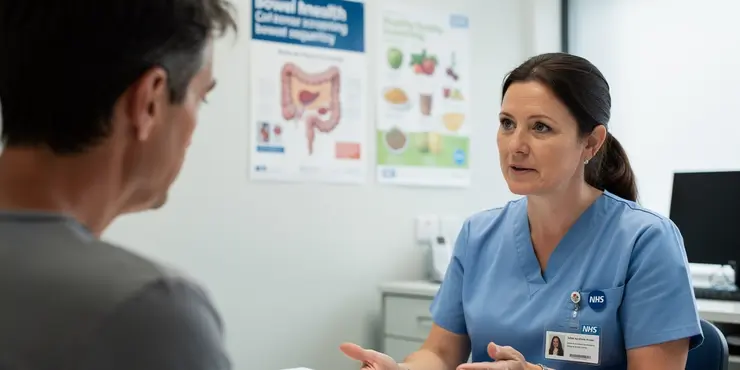
What role does diet play in the risk of developing bowel cancer?
Relevance: 58%
-
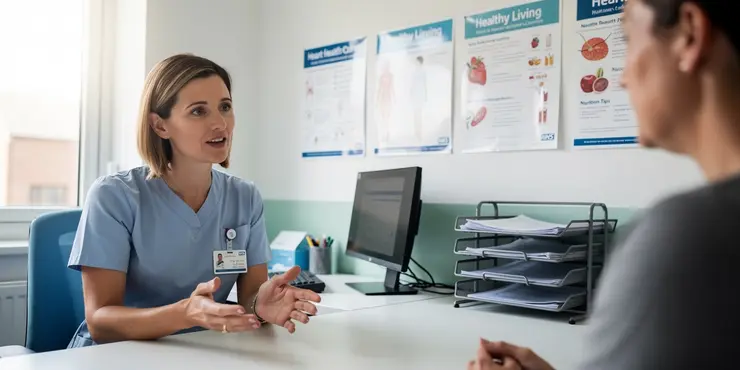
What lifestyle changes can help lower the risk of bowel cancer?
Relevance: 58%
-
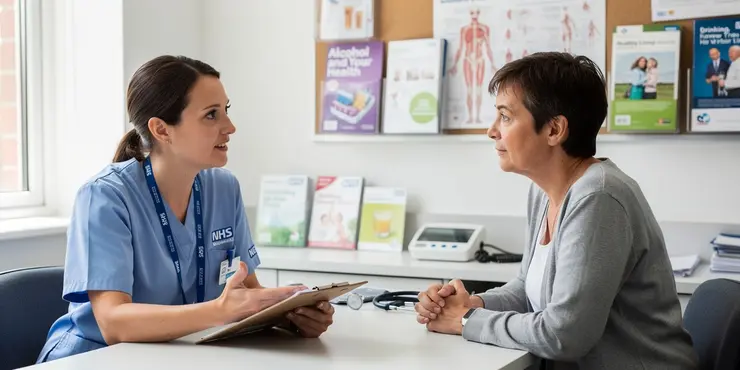
What role does alcohol consumption play in bowel cancer risk?
Relevance: 58%
-
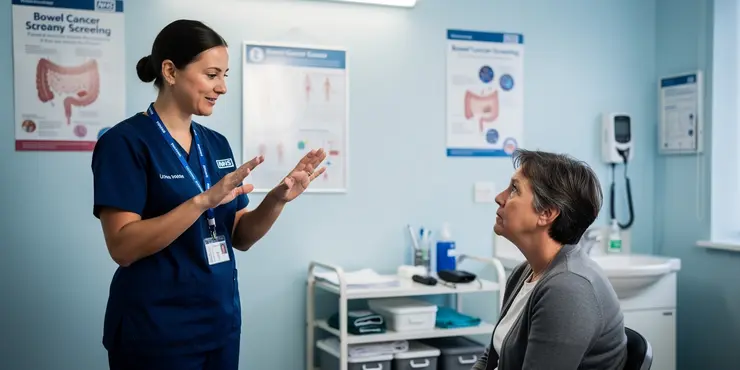
Learn about bowel cancer (British Sign Language version)
Relevance: 56%
-
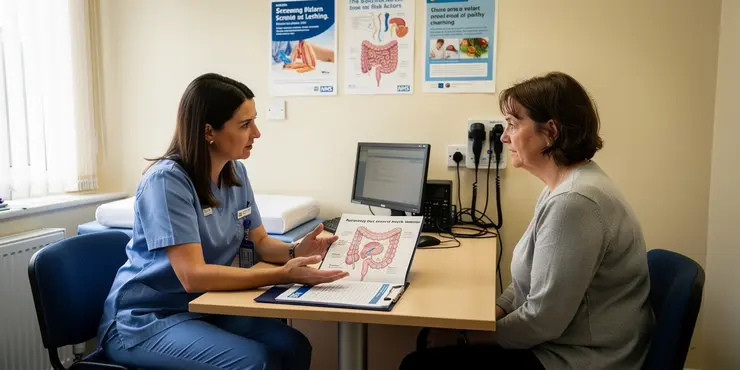
What factors increase my risk of colorectal cancer?
Relevance: 55%
-
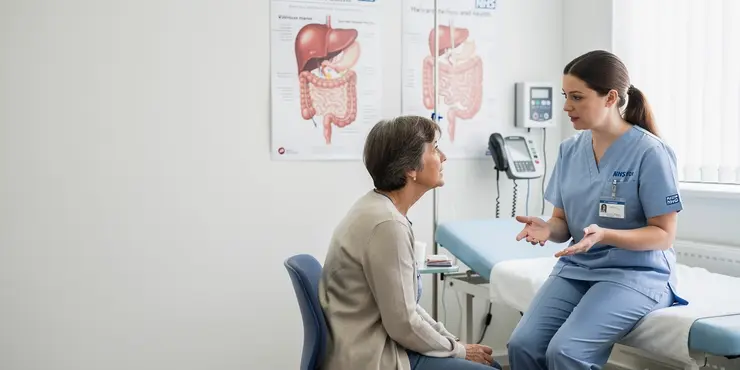
Is diet linked to the rise in bowel cancer?
Relevance: 54%
-
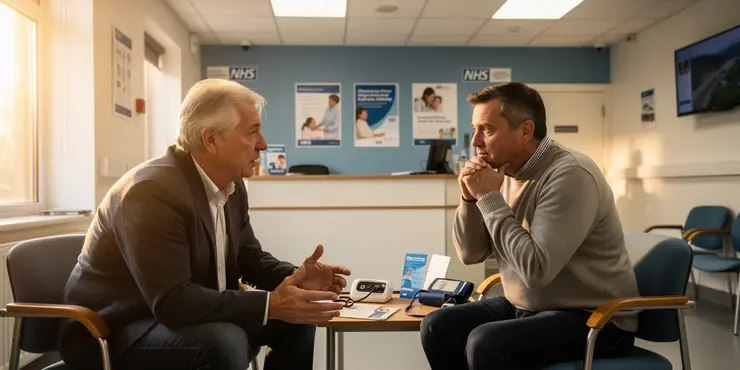
Bowel cancer screening: Alan Titchmarsh and Tommy Walsh | NHS
Relevance: 52%
-
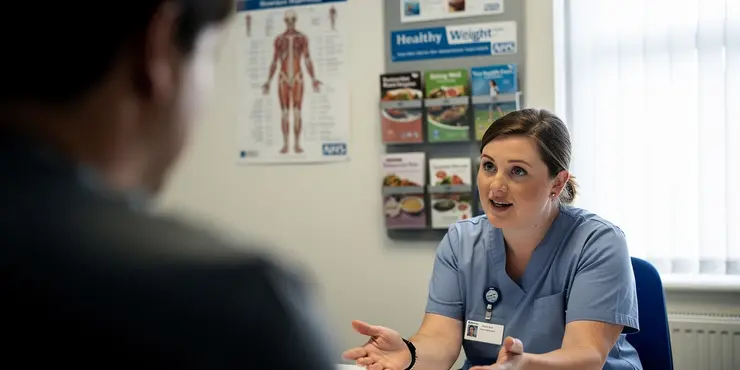
How does obesity affect bowel cancer rates?
Relevance: 52%
-
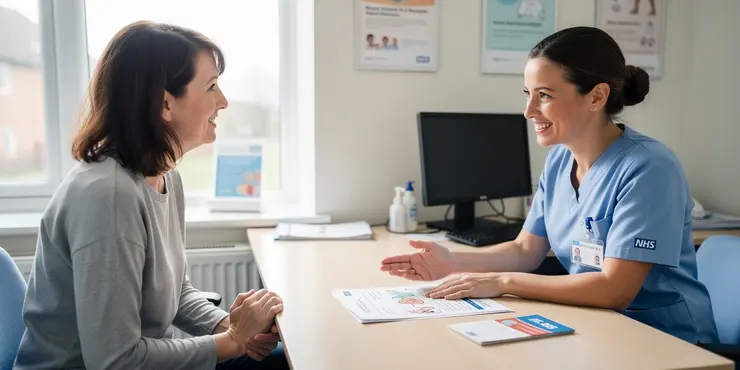
What support is available for individuals diagnosed with bowel cancer?
Relevance: 52%
-
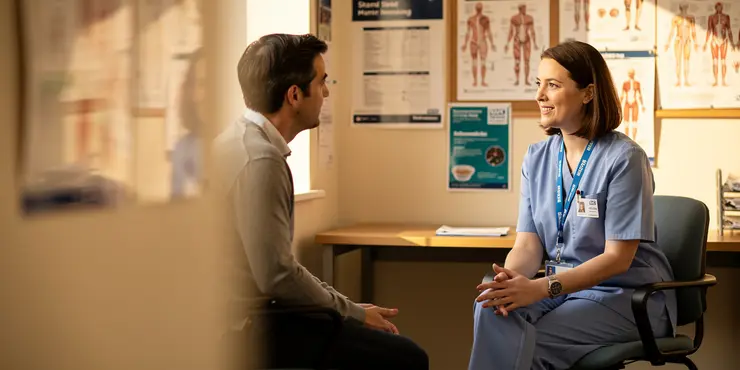
What treatment options are available for bowel cancer?
Relevance: 51%
-
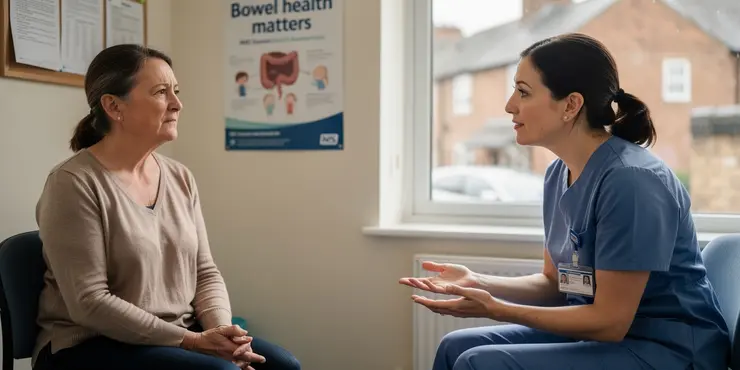
Can bowel cancer spread to other parts of the body?
Relevance: 51%
-
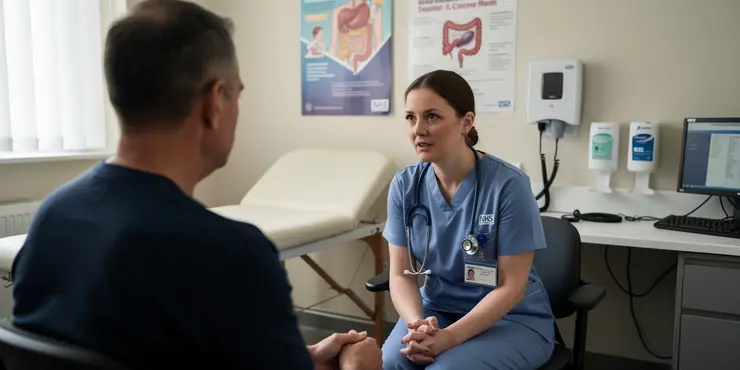
What is the survival rate for bowel cancer?
Relevance: 50%
-

Are there specific benefits of exercise for bowel cancer survivors?
Relevance: 50%
-
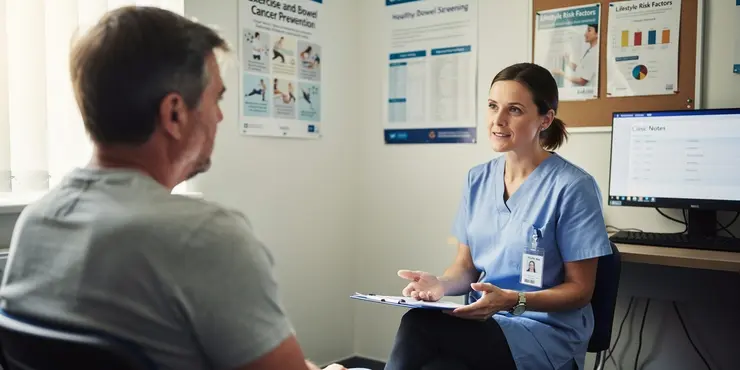
How does exercise impact bowel cancer progression?
Relevance: 50%
-
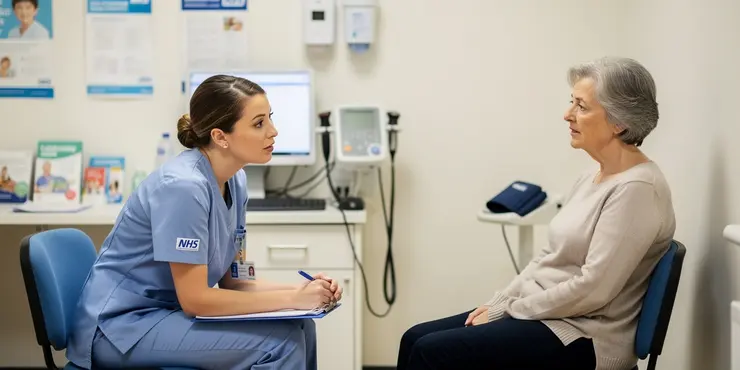
Bowel Cancer
Relevance: 50%
-
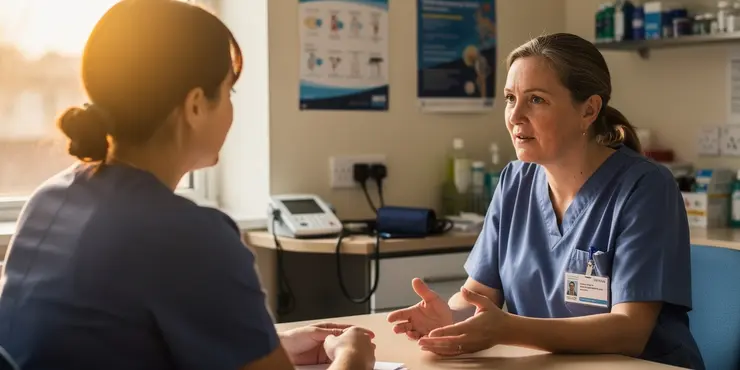
What are the side effects of bowel cancer treatment?
Relevance: 49%
-
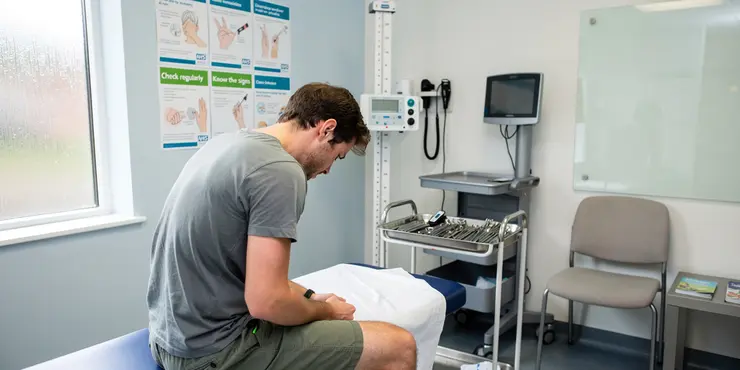
Who is at risk for testicular cancer?
Relevance: 49%
-
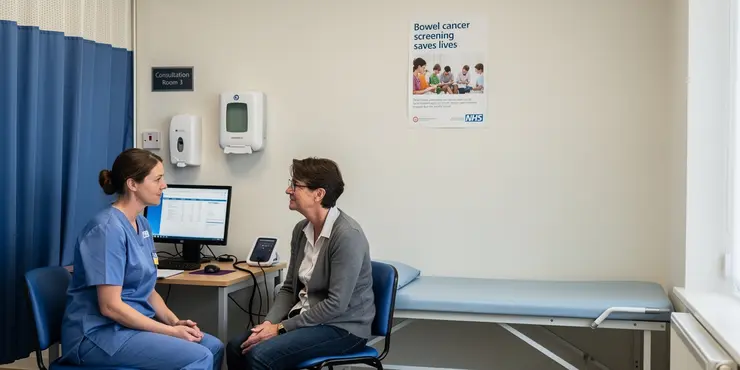
How does increased screening impact bowel cancer statistics?
Relevance: 48%
-

Can exercise help slow down the progression of bowel cancer?
Relevance: 48%
-
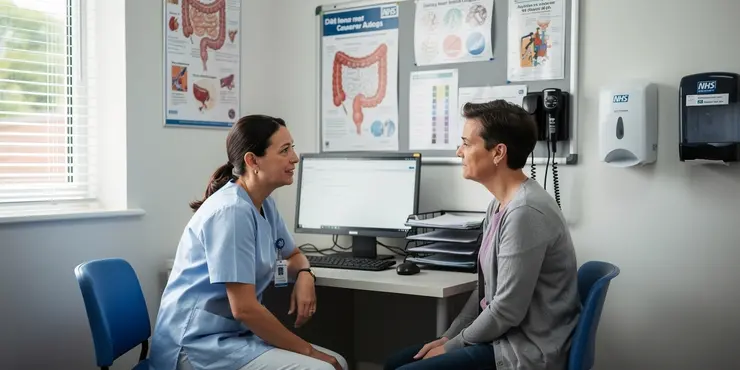
How is the stage of bowel cancer determined?
Relevance: 48%
-
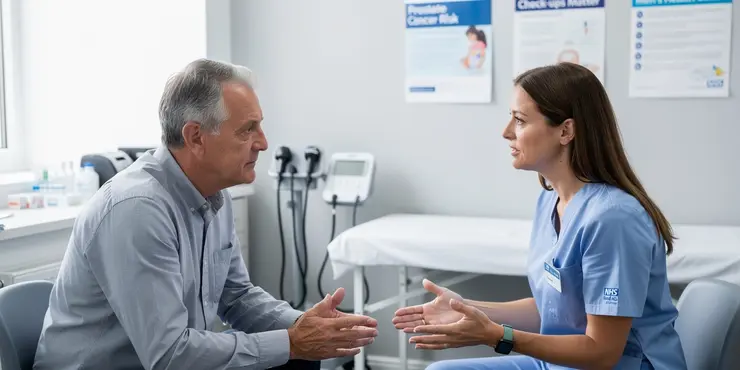
Am I more at risk of prostate cancer?
Relevance: 48%
-

Can exercise help slow down the progression of bowel cancer?
Relevance: 47%
-
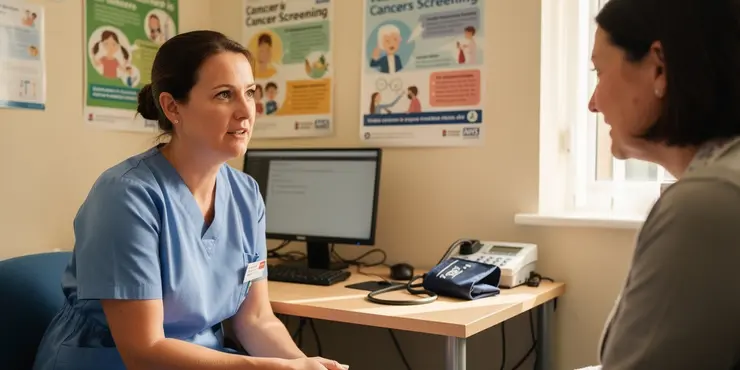
Are there any risk factors that increase the need for cancer screening?
Relevance: 47%
-
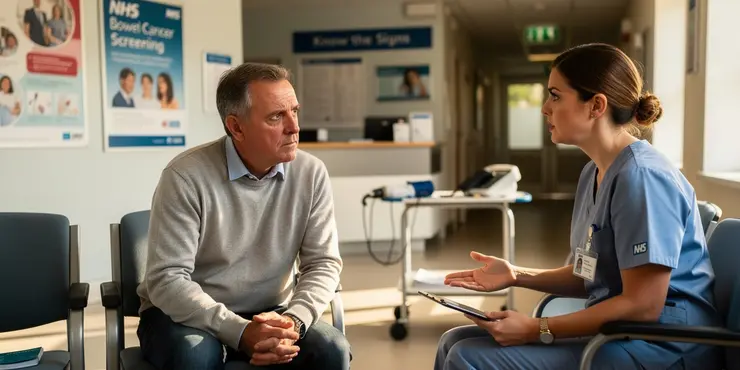
What is colorectal cancer?
Relevance: 46%
-
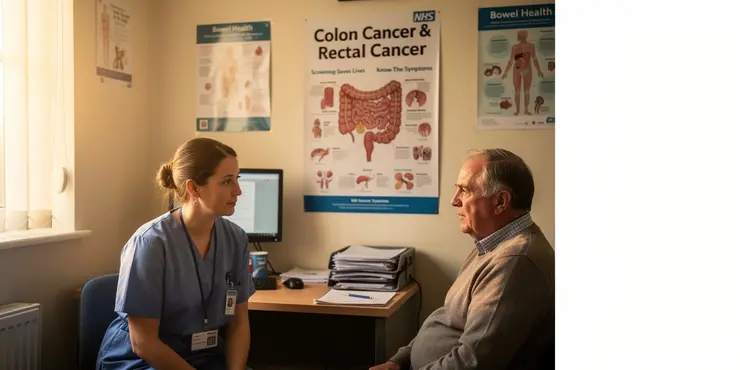
What is the difference between colon cancer and rectal cancer?
Relevance: 46%
-
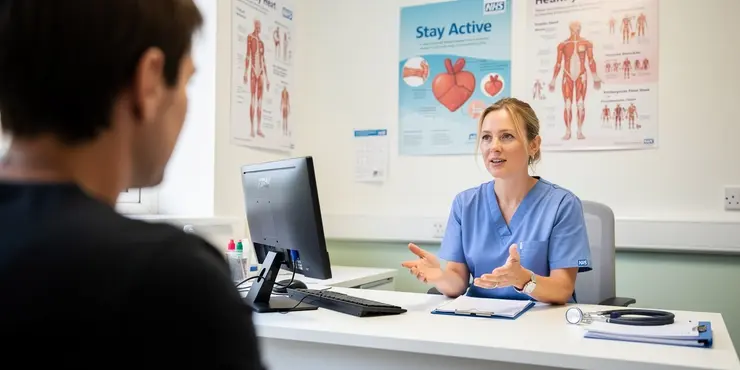
What types of exercise are beneficial for bowel cancer patients?
Relevance: 46%
-
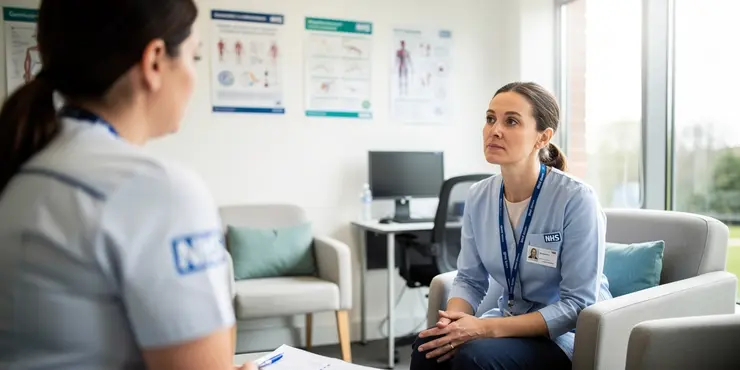
Is genetic screening available for cancer risk?
Relevance: 45%
Understanding Bowel Cancer
Bowel cancer, also known as colorectal cancer, is a disease that affects the large bowel, which is made up of the colon and rectum. It is one of the most common types of cancer in the UK, with thousands of new cases diagnosed each year. The risk of developing bowel cancer is influenced by a combination of lifestyle factors, environmental exposure, and genetic predispositions.
The Role of Family History
Family history plays a significant role in the risk of bowel cancer. Individuals with a family history of bowel cancer have an increased risk of developing the disease themselves. This risk is particularly higher if one or more first-degree relatives, such as a parent or sibling, has been diagnosed with bowel cancer, especially if the diagnosis was made at a younger age.
Genetic Factors
Certain genetic mutations can also contribute to an increased risk of bowel cancer. Hereditary conditions such as Lynch syndrome (also known as hereditary non-polyposis colorectal cancer or HNPCC) and familial adenomatous polyposis (FAP) are linked to a higher likelihood of developing bowel cancer. Lynch syndrome increases bowel cancer risk significantly and can also predispose individuals to other types of cancer. FAP, though rarer, causes numerous polyps to form in the lining of the colon and rectum, and nearly all cases will progress to cancer if not managed proactively.
Screening and Prevention
For individuals with a family history of bowel cancer, regular screening is crucial. The NHS offers bowel cancer screening to detect cancer early, when it is most treatable. Those with a family history may be advised to start screening earlier and to undergo colonoscopies more frequently. Genetic counseling and testing might be recommended for families with known hereditary conditions to assess risk and guide appropriate surveillance strategies.
Lifestyle Factors
While genetic factors cannot be changed, lifestyle modifications can help reduce the risk of developing bowel cancer. These include maintaining a healthy weight, following a diet rich in fibre, low in red and processed meats, limiting alcohol consumption, and avoiding smoking. Regular physical activity is also beneficial in lowering the risk of bowel cancer.
Consulting Healthcare Professionals
Individuals concerned about their family history of bowel cancer should consult healthcare professionals. A GP or a genetic counselor can provide personalized advice based on one's family medical history and might suggest interventions that could lower the risk. Early detection and intervention are key to improving outcomes for those at increased risk.
What is Bowel Cancer?
Bowel cancer is a disease that happens in the large bowel. This includes the colon and rectum. It is a common cancer in the UK. Many people find out they have it each year. Things like what you eat, where you live, and your family's health history affect your chances of getting it.
Family History and Bowel Cancer
If someone in your family had bowel cancer, you might have a higher chance of getting it too. This is especially true if your parent or brother/sister had it when they were young.
Genes and Bowel Cancer
Sometimes, changes in your genes can increase your risk. Two conditions, Lynch syndrome and FAP, can make it more likely to get bowel cancer. Lynch syndrome can also lead to other cancers. FAP is less common but it causes many small growths in the bowel that can turn into cancer.
Checking for Bowel Cancer
If bowel cancer runs in your family, getting checked is important. The NHS helps find cancer early on. You might need to start getting tests earlier and more often than others. If your family has certain conditions, talking to a genetic counselor can help.
Healthy Lifestyle Choices
You can lower your risk by making healthy choices. Try to stay at a healthy weight, eat foods high in fibre, eat less red and processed meat, drink less alcohol, and do not smoke. Keeping active also helps.
Talk to a Doctor
If you are worried about bowel cancer, talk to a doctor. They can give advice based on your family history. They might suggest ways to lower your risk. Finding problems early can help a lot.
Frequently Asked Questions
What is bowel cancer?
Bowel cancer, also known as colorectal cancer, is a type of cancer that occurs in the colon or rectum.
How does family history affect the risk of bowel cancer?
A family history of bowel cancer can increase an individual's risk, particularly if a close relative was diagnosed at a young age or if multiple family members are affected.
What is considered a 'close relative' when assessing bowel cancer risk?
Close relatives include parents, siblings, or children. Having one or more of these relatives with bowel cancer can increase your risk.
Does having a family history of bowel cancer mean I will definitely get it?
No, it means you have a higher risk, but it doesn't guarantee you will develop bowel cancer. Other factors like lifestyle and genetics also play a role.
What genetic conditions can increase bowel cancer risk?
Genetic conditions such as Lynch syndrome and familial adenomatous polyposis (FAP) significantly increase the risk of bowel cancer.
Should people with a family history of bowel cancer undergo regular screening?
Yes, they are often advised to start screening at an earlier age and may need to be screened more frequently.
What are the common symptoms of bowel cancer?
Common symptoms include changes in bowel habits, blood in stools, abdominal pain, unexplained weight loss, and fatigue.
Can lifestyle changes impact my risk of developing bowel cancer?
Yes, maintaining a healthy diet, exercising regularly, not smoking, and limiting alcohol can help reduce the risk.
Is genetic testing available for bowel cancer risk?
Yes, genetic testing can identify specific mutations associated with a higher risk of bowel cancer, especially for those with a strong family history.
How does Lynch syndrome affect bowel cancer risk?
Lynch syndrome is a hereditary condition that increases the risk of bowel cancer and other cancers, often at a younger age.
What is familial adenomatous polyposis (FAP)?
FAP is a genetic disorder where numerous polyps form in the colon, increasing the risk of bowel cancer if not managed.
How often should someone with a family history of bowel cancer get screened?
It may vary, but typically, screening is recommended every 5 years starting at a younger age compared to the general population.
What types of screening are recommended for bowel cancer?
Screening options include colonoscopies, fecal occult blood tests (FOBT), and sigmoidoscopies.
What is the significance of age in bowel cancer risk?
While age is a significant risk factor, individuals with a family history may be at risk at a younger age compared to the general population.
Can bowel cancer be prevented?
While it may not be completely preventable, early detection through screening and lifestyle changes can significantly reduce risk.
Is bowel cancer more aggressive in those with a family history?
Cancer can be more aggressive if associated with certain genetic syndromes like Lynch syndrome.
Should I discuss my family history of bowel cancer with my doctor?
Yes, it's important to inform your doctor as it can influence screening recommendations and preventive strategies.
What role does diet play in bowel cancer risk?
High consumption of red and processed meats can increase risk, while a diet high in fruits, vegetables, and fiber can lower it.
Are there national guidelines for bowel cancer screening?
Yes, guidelines are provided by entities like the American Cancer Society, which outline risk-based screening recommendations.
What are the benefits of early detection of bowel cancer?
Early detection allows for more effective treatment and a higher chance of successful outcomes, reducing mortality rates.
What is bowel cancer?
Bowel cancer is a sickness in your tummy. It starts when bad cells grow in the big tube inside your body where food goes after you eat. This tube is called the bowel. It's important to see a doctor if you feel unwell or find blood in your poo.
Helpful tips:
- Talk to someone you trust if you are worried.
- Use pictures or videos to understand better.
- Ask your doctor to explain things slowly and clearly.
Bowel cancer is a sickness. It happens in the lower part of your tummy, called the colon or rectum. People also call it colorectal cancer.
How can your family history change your chances of getting bowel cancer?
If people in your family had bowel cancer, you might have a higher chance of getting it too. This is especially true if a close family member got it when they were young or if many family members have had it.
To better understand your risk, you can talk to your doctor. They can help you with tests or give you advice on how to stay healthy.
Who is a 'close relative' when checking for bowel cancer risk?
Close family members are your parents, brothers, sisters, or children. If any of them have had bowel cancer, it might mean you could have a higher chance of getting it too.
If my family had bowel cancer, will I get it too?
Having family members with bowel cancer does not mean you will definitely get it. It can be helpful to talk to a doctor about your risk.
Here are some things you can do:
- Ask your doctor for advice.
- Eat healthy foods like fruits and vegetables.
- Stay active and exercise.
- If you smoke, try to quit.
If reading is hard, you can try:
- Using a reading app to read the text aloud.
- Asking someone for help to understand the words.
No, it does not mean you will get bowel cancer for sure. But you do have a higher chance. Other things like how you live and your family history also matter.
What are the genetic conditions that can make bowel cancer risk higher?
Some people can have changes in their genes that might make getting bowel cancer more likely. These are called genetic conditions.
Here are some genetic conditions that can make bowel cancer risk higher:
- Familial Adenomatous Polyposis (FAP): This is when small lumps called polyps grow in the bowel.
- Lynch syndrome: This is when there is a change in a gene that helps fix DNA mistakes, and it can cause different types of cancer, including bowel cancer.
If you have a family history of these conditions, talk to a doctor. They might suggest tests to keep an eye on your health.
Some tools and techniques can help you understand more about these conditions:
- Ask a doctor to explain these conditions in simple words.
- Use pictures or books that explain how genes work.
- Watch videos made for kids about health and the body.
Some people are born with genes that can make them more likely to get bowel cancer. These genes can be part of conditions like Lynch syndrome or familial adenomatous polyposis (FAP). If you have these conditions, it means you have a higher chance of getting bowel cancer.
Should people with family cases of bowel cancer have regular check-ups?
If someone in your family has had bowel cancer, it might be a good idea to see the doctor often to check for it.
Helpful tools:
- Ask your doctor about easy tests for bowel cancer.
- Use a calendar to remember your check-up dates.
Techniques:
- Talk to your family about their health history.
- Write down any questions you have for your doctor.
Yes, they are often told to start checking earlier. They might need more check-ups too.
Signs of Bowel Cancer
Here are some signs to look out for:
- Tummy pain or a bloated belly
- Blood in your poo
- Going to the toilet more often
- Feeling tired all the time
- Weight loss without trying
If you notice any of these, tell a grown-up or talk to a doctor.
Using picture cards or asking someone to read with you can help understand better.
Here are some signs to watch out for:
- Your toilet habits might change.
- You might see blood in your poo.
- Your tummy might hurt.
- You might lose weight without trying.
- You might feel very tired.
If you notice these signs, it's a good idea to talk to a doctor.
To make reading easier, try using a ruler or your finger to follow the words. Reading out loud can also help.
Can changing how I live change my chance of getting bowel cancer?
Yes, how you live can change your chance of getting bowel cancer. Here is how:
- Eat Healthy: Try to eat more fruits and veggies. They are good for you.
- Move Your Body: Exercise or play outside. It helps keep you healthy.
- Don't Smoke: Smoking is bad for your body. Ask for help to quit if you smoke.
- Limit Alcohol: Try not to drink too much alcohol. Drinking less is safer.
Here are some tools that can help:
- Use a food diary to track what you eat.
- Join a walking group to stay active.
- Find a support group if you want help to stop smoking or drinking.
Making these changes can lower your chance of getting bowel cancer.
Yes, eating healthy food, exercising often, not smoking, and drinking less alcohol can help you stay healthy and safe.
Can I get a test to find out if I might get bowel cancer?
Yes, doctors can do special tests to look at your genes. These tests can find changes that mean you might have a higher chance of getting bowel cancer. This is especially important if many people in your family have had bowel cancer.
If you find this hard to read, you might use a tool that reads the text out loud for you, or ask someone to help explain it.
How does Lynch syndrome affect bowel cancer risk?
Lynch syndrome is something that can run in families. It can make it more likely for a person to get bowel cancer. If you have Lynch syndrome, your chances of getting bowel cancer are higher than for other people.
People with Lynch syndrome have changes in their genes. These changes make it hard for the body to fix mistakes in DNA. This can cause cells to grow into cancer.
If you think you have Lynch syndrome or someone in your family does, it's important to see a doctor. The doctor can give you advice and check your health more often to find any problems early.
It can help to talk with a genetic counselor. They can give you more information about Lynch syndrome and help you understand what to do next.
Using tools like pictures, charts, or videos can also help explain things better. These tools can make it easier to understand what Lynch syndrome is and how to take care of your health.
Lynch syndrome is something you inherit from your family. It means you might get bowel cancer and other kinds of cancer more easily, and sometimes when you are younger.
To help understand more, you can:
- Talk to a doctor about Lynch syndrome.
- Look at pictures or videos about Lynch syndrome.
- Use simple apps or websites to learn about it.
What is familial adenomatous polyposis (FAP)?
FAP is a health problem that can make lots of small lumps called polyps grow in the tummy. It is something people can get from their family. If you have questions, ask a doctor or nurse.
You can use pictures and videos to learn more. You can also ask someone to help read this with you.
FAP is a health problem you are born with. It can make lots of little bumps, called polyps, grow inside your colon. This can make it more likely to get bowel cancer if not taken care of.
How often should you get tested if your family had bowel cancer?
If someone in your family had bowel cancer, you need to get tested regularly. This helps doctors find signs early. Regularly means at set times, not just once.
Here’s what you can do:
- Ask your doctor how often you need tests. They will tell you the best plan for you.
- Write it down in a calendar, so you don't forget.
- Ask a family member or friend to remind you to get tested.
People usually get checked every 5 years. They start these checks when they are younger than most people.
What tests should you have to check for bowel cancer?
Doctors use different tests to check the colon. These tests are called colonoscopies, FOBTs, and sigmoidoscopies.
Why is age important for bowel cancer risk?
Getting older can make it more likely to have bowel cancer.
People over 50 need to look out for signs and stay healthy.
Talk to a doctor about ways to check and be safe.
Getting older can be a risk. But if someone in your family has had a problem, you might be at risk earlier than most people.
Can we stop bowel cancer?
It's hard to stop all bowel cancer, but we can make it less likely.
Here are some tips:
- Eat more fruits and vegetables.
- Exercise regularly.
- Stop smoking.
- Drink less alcohol.
Regular check-ups with your doctor can help too.
You can't always stop it from happening, but finding it early with check-ups and making changes in how you live can make it much less likely.
Is Bowel Cancer Worse if it Runs in Your Family?
Bowel cancer is a disease that happens in the gut. It can be more serious if someone in your family has had it. If family members, like your mom or dad, had bowel cancer, it means you might have a higher chance of getting it too.
It’s important to talk to a doctor about your family history. A doctor can help you understand your risk and tell you about tests you can take to check for cancer early. Catching cancer early can make it easier to treat.
Some helpful tools are:
- Family tree: Write down who in your family has had cancer.
- Doctor visit: Regular check-ups can help find problems early.
- Healthy habits: Eating well and exercising can keep your body strong.
Cancer can grow quickly if you have certain gene problems like Lynch syndrome.
Should I talk to my doctor about bowel cancer in my family?
Yes, tell your doctor. This helps the doctor give you good advice and care.
How does food affect the chance of getting bowel cancer?
Eating a lot of red meat and processed meat can be bad for you. It can make you sick. But eating lots of fruits, vegetables, and foods with fiber is good for you. It can help keep you healthy.
Is there a guide for checking for bowel cancer?
Yes, there are rules from groups like the American Cancer Society. These rules say when you should get tested based on your risk.
Why is it good to find bowel cancer early?
When we find bowel cancer early, it is easier to treat. Finding it early can help you get better faster.
If bowel cancer is found early, doctors can use treatments that work better. This means you have a better chance of getting well.
It is important to see a doctor if you feel something is not right. They can do tests to see if there is a problem.
You can ask someone you trust to help you talk to the doctor. They can also help you understand what the doctor says.
Finding an illness early means doctors can treat it better. This gives people a better chance to get well and live longer.
Useful Links
This website offers general information and is not a substitute for professional advice.
Always seek guidance from qualified professionals.
If you have any medical concerns or need urgent help, contact a healthcare professional or emergency services immediately.
Some of this content was generated with AI assistance. We’ve done our best to keep it accurate, helpful, and human-friendly.
- Ergsy carfully checks the information in the videos we provide here.
- Videos shown by Youtube after a video has completed, have NOT been reviewed by ERGSY.
- To view, click the arrow in centre of video.
- Most of the videos you find here will have subtitles and/or closed captions available.
- You may need to turn these on, and choose your preferred language.
- Go to the video you'd like to watch.
- If closed captions (CC) are available, settings will be visible on the bottom right of the video player.
- To turn on Captions, click settings .
- To turn off Captions, click settings again.
More Items From Ergsy search
-

How does family history affect the risk of bowel cancer?
Relevance: 100%
-

Taking a Genetic Family History - The Conversation (Bowel Cancer)
Relevance: 93%
-

What are the risk factors for bowel cancer?
Relevance: 79%
-

What is Bowel Cancer?
Relevance: 67%
-

How common is bowel cancer?
Relevance: 65%
-

Should people with a family history of colorectal cancer take aspirin?
Relevance: 64%
-

Can bowel cancer be prevented?
Relevance: 63%
-

Why is there a surge in bowel cancer?
Relevance: 61%
-

What factors are contributing to the increase in bowel cancer cases?
Relevance: 61%
-

How is bowel cancer diagnosed?
Relevance: 60%
-

Can lifestyle changes help reduce bowel cancer risk?
Relevance: 59%
-

Bowel cancer - Symptoms and signs to look out for
Relevance: 59%
-

Are younger people being diagnosed with bowel cancer more frequently?
Relevance: 58%
-

What role does diet play in the risk of developing bowel cancer?
Relevance: 58%
-

What lifestyle changes can help lower the risk of bowel cancer?
Relevance: 58%
-

What role does alcohol consumption play in bowel cancer risk?
Relevance: 58%
-

Learn about bowel cancer (British Sign Language version)
Relevance: 56%
-

What factors increase my risk of colorectal cancer?
Relevance: 55%
-

Is diet linked to the rise in bowel cancer?
Relevance: 54%
-

Bowel cancer screening: Alan Titchmarsh and Tommy Walsh | NHS
Relevance: 52%
-

How does obesity affect bowel cancer rates?
Relevance: 52%
-

What support is available for individuals diagnosed with bowel cancer?
Relevance: 52%
-

What treatment options are available for bowel cancer?
Relevance: 51%
-

Can bowel cancer spread to other parts of the body?
Relevance: 51%
-

What is the survival rate for bowel cancer?
Relevance: 50%
-

Are there specific benefits of exercise for bowel cancer survivors?
Relevance: 50%
-

How does exercise impact bowel cancer progression?
Relevance: 50%
-

Bowel Cancer
Relevance: 50%
-

What are the side effects of bowel cancer treatment?
Relevance: 49%
-

Who is at risk for testicular cancer?
Relevance: 49%
-

How does increased screening impact bowel cancer statistics?
Relevance: 48%
-

Can exercise help slow down the progression of bowel cancer?
Relevance: 48%
-

How is the stage of bowel cancer determined?
Relevance: 48%
-

Am I more at risk of prostate cancer?
Relevance: 48%
-

Can exercise help slow down the progression of bowel cancer?
Relevance: 47%
-

Are there any risk factors that increase the need for cancer screening?
Relevance: 47%
-

What is colorectal cancer?
Relevance: 46%
-

What is the difference between colon cancer and rectal cancer?
Relevance: 46%
-

What types of exercise are beneficial for bowel cancer patients?
Relevance: 46%
-

Is genetic screening available for cancer risk?
Relevance: 45%


